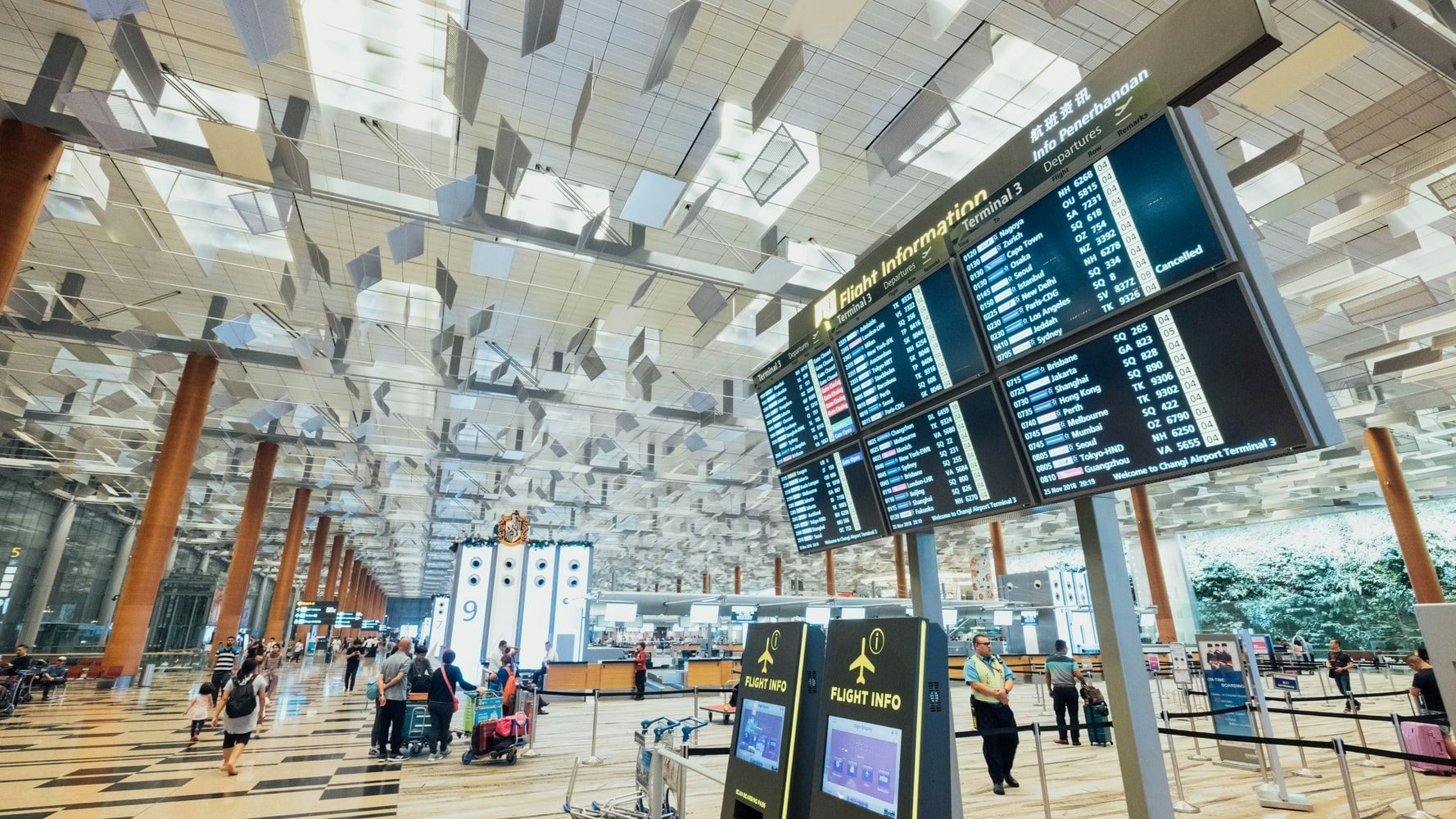For months, even the busiest airports in the U.S. have been nearly empty. But as COVID-19 cases trend downward in some parts of the country and new precautions are developed, travelers are returning to the skies. For the first time since the start of the pandemic, the TSA screened one million passengers in a single day on October 18th. In response, the agency is developing new precautions to minimize spread of COVID-19 in airports. Read on to learn about how the TSA is addressing COVID-19 risks as millions of passengers return to air travel.
✈ Need to renew your passport? Try our #1 rated door-to-door passport renewal service️.
Are TSA Officers Still Checking IDs?
To minimize line bottlenecks and allow passengers to keep their distance from each other and from TSA officers, the TSA has just announced that they are installing new credential authentication machines at many checkpoints. Passengers will insert their IDs directly into these card readers, and they will be read electronically. Passengers are also asked to place their boarding passes on to the pass reader themselves, so officers never touch them.
Are TSA Officers Still Opening Luggage?
Although officers might occasionally still need to open up bags, the agency is using new precautions to minimize it as much as possible. They’ve installed CT scanners at many checkpoints to give officers a better view of what’s inside luggage. If TSA officers do need to open up a bag and find an item that needs to be removed, passengers will be asked to leave the security area and take out prohibited items themselves.
Are There Barriers Between Passengers and Officers?
Many TSA checkpoints are now equipped with plexiglass barriers between passengers and officers to minimize risk. But passengers still need to respect 6 feet of distance between each other and officers when possible; most checkpoints have social distancing markers.
Are Security Lines Longer Due to COVID-19 Precautions?
Since travel still isn’t at pre-pandemic levels, security is faster right now than it was before COVID-19 hit the U.S. But as more passengers return to air travel, security will take longer, especially because of social distancing requirements. You can minimize your time in security (and your COVID-19 risk) by enrolling in TSA PreCheck.
Conclusion: Expect A Different Security Experience When You Fly During the Pandemic
At the start of the pandemic, air travel became effectively suspended, and only frontline medical workers and occasional business travelers were flying. But as the pandemic has dragged on, the TSA has developed new precautions to make air travel safer for everyone (officers and passengers), and millions of people are flying again. Although there is still some risk of contracting COVID-19 in airports, innovations like CT scanners and card readers at checkpoints minimize spread. If you are considering flying soon, you can mitigate your risk by enrolling in TSA PreCheck, social distancing at the airport and bringing plenty of hand sanitizer. We are following travel precautions closely here at Skip, and you can read about the latest travel news and how to stay safe on our blog.
Related Articles to Read
📌 What are the Best Travel Insurance Companies for U.S. Travelers?

